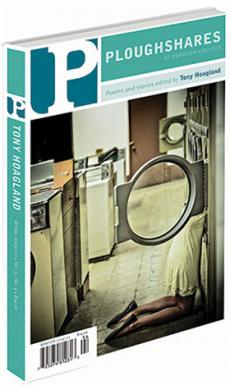Review: The Extreme of the Middle: Writings of Jack Tworkov
The Extreme of the Middle: Writings of Jack Tworkov, edited by Mira Schor (Yale University Press): Jack Tworkov, one of the original members of the school of Abstract Expressionism, was also a teacher, administrator, husband, father, friend and devoted reader of poetry. All the facets of this complex and humane man are reflected in this substantial collection which spans his writing over forty-six years.
Edited by artist and writer Mira Schor, who knew Tworkov since she was a child, the book presents letters; journals; essays from Art News and Art in America; unpublished writings on aesthetics and practice, and more than sixty photographs and color plates.
In her introduction, Schor manages to write personally about the man she knew while at the same time placing him objectively in history. Her lucid prose reflects the compression and clarity in Tworkov’s own writing. She calls Tworkov “the epitome of the painter’s painter— one who knows painting to the core of his being and who is devoted to its traditions, history and practice above and beyond any personal ambition.” The joy of this book is being in the company of that man, from his beginnings, through his challenges, and into his successes. And phrase by phrase, sentence by sentence, he is a very good writer. He writes illuminatingly on the making of art, as when he says of Mondrian, that he is, “more interesting in all the stages of his approaching than in his final stage. His final state is beautiful, but boring. If you are an artist, what is the difference between a final style and manufacturing? I’m not interested in making it better. I’m interested in development…” And this heartening invitation to younger artists: “You can draw a dream on a drafting board with a 4H pencil—if you are wide awake to the dream.” In his diaries, we discover frank portraits of friends and acquaintances, with all their flaws and virtues. Tworkov’s painterly eye and writerly sense of detail bring the scene to life whether he is describing a cheapskate colleague poorly tipping a porter, or the painter Elise Asher learning the Twist at a New Year’s Eve Party. The accomplishment of this book is that it provides not only a three-dimensional portrait of a man, but more, the portrait of an era, particularly the tussle and tumult of the Abstract Expressionist crowd, its coming of age, and its aging.
It is no accident that a great deal of Tworkov’s prose concerns teaching. He lectured and taught at many institutions and chaired the Art Department at the School of Art and Architecture at Yale from 1963 to 1969. Teaching was a natural vocation for him, since he was a founder of The Eighth Street Club (along with others that included Willem de Kooning and Franz Kline), the gathering place where artists held panels on art, lectured and heard lectures from scientists, philosophers, sociologists, and others in various fields. In a 1952 journal entry, Tworkov wrote,“I think that 39 East 8th is an unexcelled university for an artist.” He spent his life learning from past masters and from his contemporaries in art, but also in other disciplines, particularly literature, dance and music. His unbridled curiosity made him a master learner which in turn transformed him into a celebrated teacher.
Philip Larkin wrote of his admiration for Thomas Hardy, that in the eight hundred pages that make up his Collected Poems, “there is always a little spinal cord of thought, and each has a little tune of its own.” The same can be said for this collection. Open it anywhere and find an intriguing notion, statement, perception—applicable to other fields and to life itself—from a man dedicated to art and who loved life, whose impervious integrity inspired and even frightened some of his contemporaries. Stanley Kunitz, Tworkov’s next door neighbor in Provincetown for several decades, has written, “Live in the layers,/ not on the litter.” Tworkov’s life reflects that admonition; he detested politicking and careerism. Mira Schor’s labor of love—the task in collecting and assembling these papers into a coherent whole must have been monumental—brings to life an artist once referred to as a “quiet giant” of American art, and thanks to her effort, his intelligent, inquisitive voice is given full throat in these pages. —John Skoyles is the poetry editor of Ploughshares. His latest collection of poetry is The Situation.

